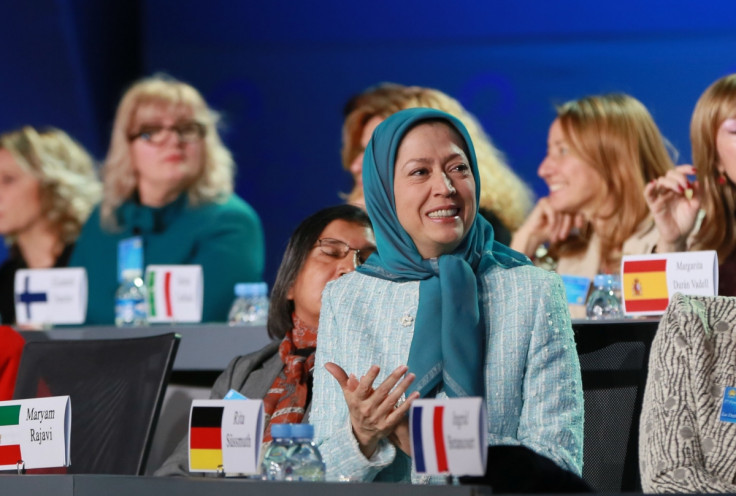Leader of Iranian resistance blasts country's 'compulsory politics' and 'sham elections'

The exiled leader of the Iranian resistance rejected the notion of "compulsory politics" in the Islamic Republic, describing the recent elections as "a sham".
Maryam Rajavi, head of the National Council of Resistance of Iran, said at a conference in Paris on 27 February that the women of Iran should be free to make their own choices.
"The so-called election did not mean to elect the people's representatives, but it was a competition between the incumbent and former officials in charge of torture and executions," she said.
"By holding this election, [Supreme Leader of Iran] Khamenei seeks to further concentrate his regime on the war in Syria and on the misogynous suppression in Iran.
"However, it will be the beginning of an era of unprecedented fragility and decadence of the Velayat-e Faqih and he will not be able to do away with the consequences.
"Yes, now is the turn for the people of Iran and we call on our compatriots inside Iran especially the brave women and youths to expand their struggle."
Rajavi added that the regime's suppression of people had been particularly felt by women, who are forced to cover their hair, wear modest attire, have fewer rights than men, are less represented in government, and are banned from attending sports matches in stadiums, among other things.
"Iranian women must be free," she said. "They must choose their own convictions, their own clothing and their life. And we repeat: no to compulsory veil; no to compulsory religion; and no to compulsory government."
Her comments came as the votes in two elections for Iran, the Majlis and the Assembly of Experts, were being counted – with initial reports from inside the Islamic Republic suggesting a turnout of 62%, although this has been disputed by the NCRI, which believes the real number is far lower.
Moderate candidates have also reportedly done well in the elections – the first to be held since the nuclear deal in July 2015 that has brought the cessation of crippling sanctions on the country and the promise of economic improvement.
© Copyright IBTimes 2025. All rights reserved.





















